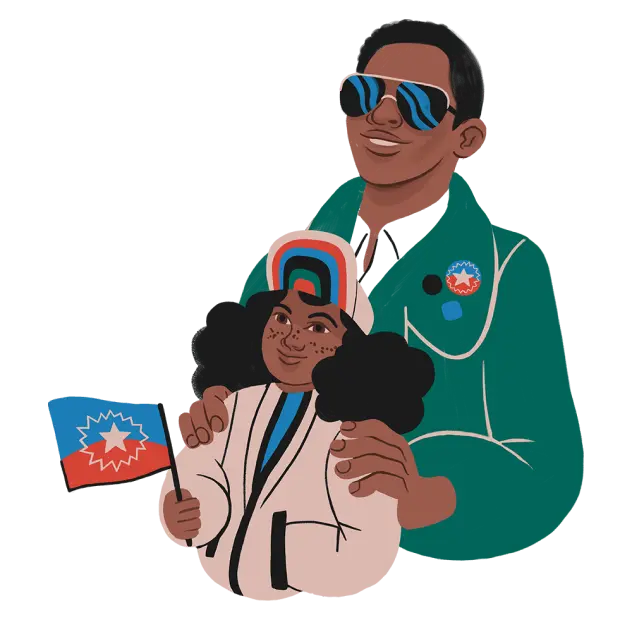Natalie Diaz Collection - I See My Light Shining

Indigenous Affinities: Customs and Caretaking
How do we hold our heritage close? In this collection, Indigenous elders, primarily storytellers, discuss cultural pride showcasing its strength and beauty.
How do we hold our heritage close? In this collection, Indigenous elders, primarily storytellers, discuss cultural pride showcasing its strength and beauty.
Meet the fellows
Natalie Diaz is Mojave and an enrolled member of the Gila River Indian Tribe. Her first poetry collection, When My Brother Was an Aztec, was published by Copper Canyon Press, and her second book, Postcolonial Love Poem, was published by Graywolf Press in March 2020 for which she won the Pulitzer Prize for Poetry in 2021. She is a MacArthur Fellow, a Lannan Literary Fellow, a United States Artists Ford Fellow, and a Native Arts Council Foundation Artist Fellow. Diaz is Director of the Center for Imagination in the Borderlands and is the Maxine and Jonathan Marshall Chair in Modern and Contemporary Poetry at Arizona State University.
Indigenous Elders
Natalie Diaz’s oral history collection gathers stories from Indigenous elders from New York to Hawaiʻi. Diaz, a Mojave and Akimel O’odham poet, educator, and language activist, lives in the Mohave Valley in Arizona. Diaz bears witness to experiences related to assimilation, community, and remembrance. In their interviews, narrators describe battling erasure, pride for their communities, and honoring their ancestors in relation to their life histories.

Interviews ( 2 )
-
Go to the interview
Muriel Miguel, alongside her wife Deborah Ratelle, reflects on her Kuna, Rappahannock heritage, founding Spiderwoman Theater, and experiences of identity, queerness, and mentorship in a multifaceted interview.
New York, NY
Play
Interview -
Go to the interview
Thomas Ka’auwai Kaulukukui Jr. recounts his journey, sharing Hawaiian culture, lore, and personal history, while reflecting on education, martial arts, and the island's transformation post-statehood.
Honolulu, Hawaii
Play
Interview
